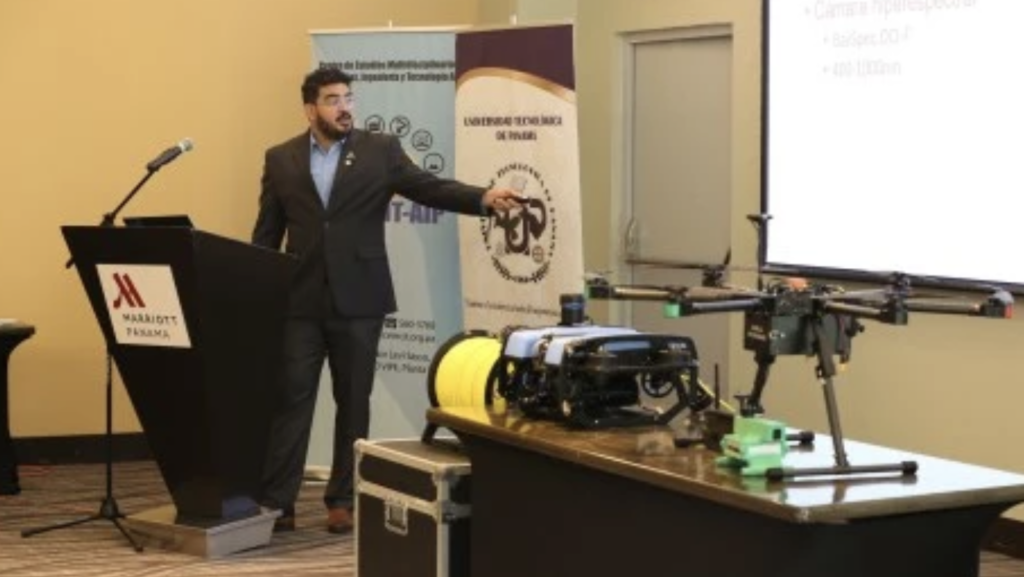
A group of Panamanian research engineers from the Technological University of Panama (UTP), developed a system that uses drones equipped with hyperspectral technology, for the detection of corrosion levels on the metal surfaces of ships.
This initiative is about the project “Development of a rapid inspection platform for marine ships based on remote sensor techniques”, which won the Public Call for Promotion of Mission-Oriented R&D (IOML) 2020 of the National Secretariat of Science, Technology and Innovation (SENACYT).
This project aims to develop a prototype of rapid and automated identification of imperfections in the hull and structural elements of marine ships using remote sensor techniques to streamline inspection processes.
The images captured by the drone camera using hyperspectral technology are then analyzed by computer vision algorithms based on artificial intelligence (AI) to identify points of interest.
Fernando Arias, a professor at the Faculty of Electrical Engineering of the UTP and a member of the group of researchers, said that every five years ships are subjected to mandatory inspections in order to maintain their continuous operation and comply with international regulations.
He added that these inspections, which are carried out in a dry dock, have the objective of ensuring the structural integrity of the ships and allow the performance of any maintenance or repair work that is necessary.
“With this project we seek to take advantage of the waiting times to which cargo ships are subjected before and/or during their transit through the Panama Canal. This waiting time provides an opportunity to create added value by carrying out pre-inspection processes of marine ships,” Arias said.
Meanwhile, Natacha Gómez, head of the Research and Development Department of SENACYT, said that knowing the results achieved by the project and its applications, it is important to consider its continuity through possible alliances of services, developments and efficient and competitive solutions, with the Panama Maritime Authority (AMP), the Panama Canal Authority (ACP), the ports and other actors in the shipping industry.
“For this it is necessary to open a dialogue of exchange of the real needs of the shipping sector, what the university can offer and the conditions required for a successful company-university alliance to materialize,” Gómez said,
He added that it is expected that the technological advances resulting from this project will be able to support the development of the country’s logistics sector, providing potential increases to the efficiency and profitability of its efforts through the creation of new modalities of value-added services to the continuous use of the interoceanic route.